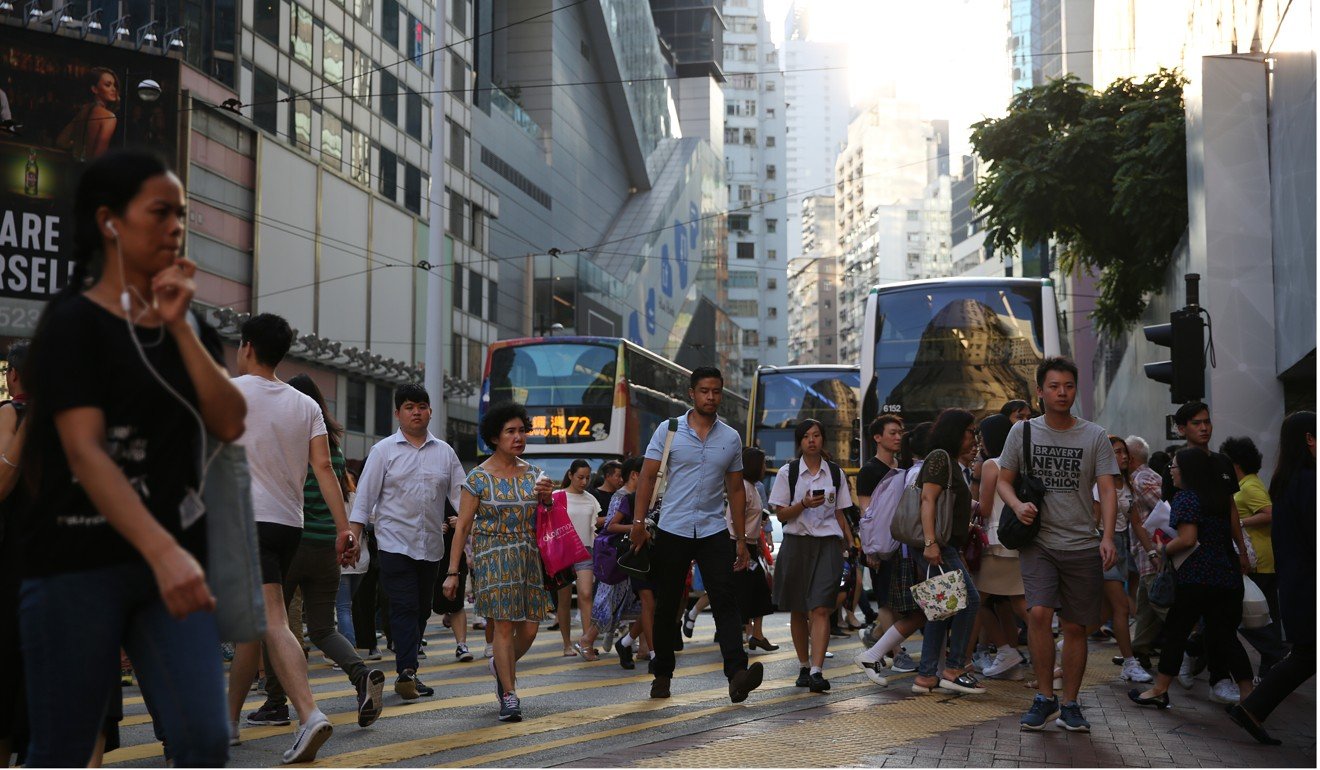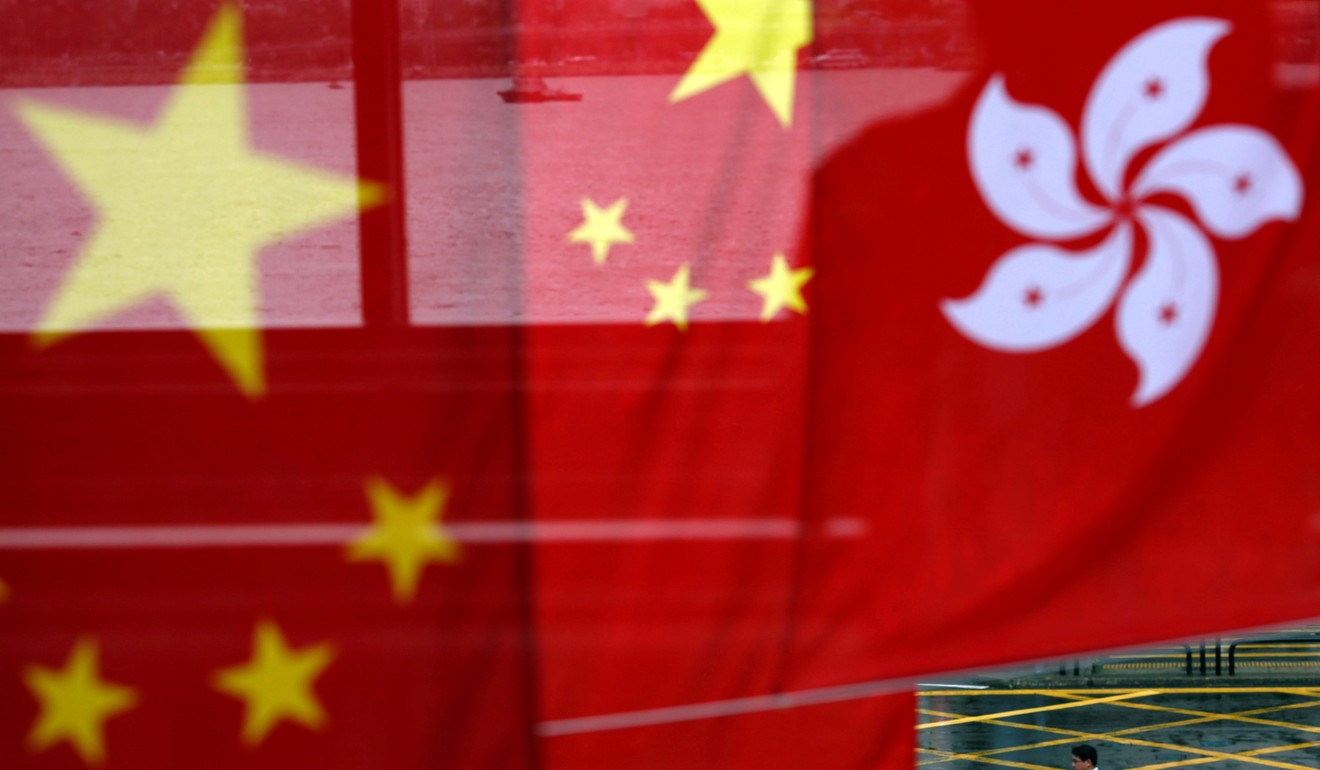
More Hongkongers proud of their identity as Chinese citizens, but young people don’t share the sentiment
Latest University of Hong Kong poll shows increase in number expressing positive feelings, but only 16 per cent of 18 to 29-year-olds agree
More Hongkongers than a year ago are proud of their identity as a Chinese citizen, but only one in six young people share the sentiment, according to the latest poll by the University of Hong Kong.
The annual survey, conducted weeks ahead of the 21st anniversary of Hong Kong’s return to Chinese rule on July 1, showed younger respondents were more likely to feel negative about Beijing’s policies towards Hong Kong.
Of 1,000 local residents polled by HKU’s public opinion programme between June 14 and 21, only 38 per cent said they were proud to be a citizen of China – up four percentage points on last year.
The result was similar to that of 2015, but a huge drop from 1997 – the year sovereignty over Hong Kong reverted to China after a century and a half of British colonial rule.

At that time 46.6 per cent expressed pride about their new nationality.
This year fewer people – 57 per cent – said they were not proud to be Chinese. That was a drop of five percentage points from last year’s figure of 62 per cent.
And in-depth analysis performed by the university found only 16 per cent of people aged between 18 and 29 felt positive about the subject. That figure was unchanged from last year.
Cantonese or Putonghua in schools? Hongkongers fear culture and identity 'waning'
The figure for young people stood in stark contrast to those aged 50 or above, half of whom said they shared a sense of pride.
A similar pattern was seen regarding opinions towards the central government’s policies on Hong Kong. Fifty-five per cent of young people held a negative view and only 13 per cent were in favour.
Political scientist Dr Ma Ngok, of the Chinese University of Hong Kong, said an increase “of a few percentage points” in the overall number expressing pride might not carry huge weight, as the result could easily be swayed by just a single incident in the year.

Studying the long-term trends was more meaningful, he said, and positive feelings about national identity had been recorded as stable in the past few years, between 30 and 40 per cent.
Ma said young Hongkongers tended to have a weaker sense of citizenship because the city’s pro-democracy Occupy protest movement in 2014 had intensified negative feelings towards Beijing. He did not foresee any change in the near future.
Hong Kong’s youth identity crisis worsening as Beijing tightens the reins, author of ‘Generation HK’ says
“The government has been trying to beef up their efforts in this area by encouraging young people to ride the economic opportunities on the mainland, but these don’t seem to appeal to them,” he said.
Meanwhile, a separate HKU poll found the approval rating for Hong Kong leader Carrie Lam Cheng Yuet-ngor was level at 54.3 points, the same as in early June.
But net satisfaction rates for five key policy areas all recorded a drop compared to six months ago. The net rate is defined as the difference between the percentage expressing satisfaction and proportion showing dissatisfaction.
The net rate for Lam’s relations with Beijing stood at just 19 percentage points. And three other net indicators also showed more residents to be dissatisfied with her ability to protect human rights and freedoms, improvements in people’s livelihoods and advances in democratic development.
Some 55 per cent were dissatisfied with the pace of democratic reform. Another 29 per cent felt otherwise on this subject, which resulted in a net satisfaction rate of minus 26 percentage points. That amounted to an eight percentage point fall – a significant drop on December’s poll.

